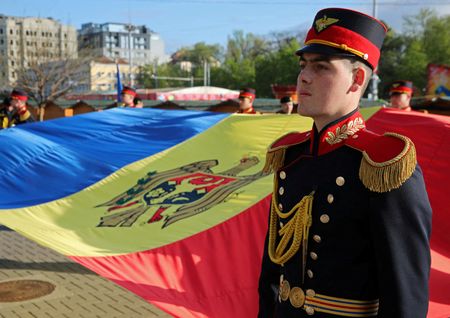 1
1 1
1
By John Irish
PARIS/CHISINAU (Reuters) – More than 40 European leaders meet in Moldova on Thursday in a show of support for the former Soviet republic and neighbouring Ukraine as Kyiv prepares to launch a counter-offensive against occupying Russian forces.
The gathering of the EU’s 27 member states and 20 other European countries at a castle deep in Moldovan wine country will touch on a range of strategic issues and launch a new EU partnership mission in the country. But the focus will be on a symbolic show of unity on Ukraine’s doorstep.
“If you sit in Moscow and see 47 countries in your immediate or close neighbourhood meeting together, that’s an important message,” an EU official told reporters ahead of the summit, which takes place 40 km (25 miles) southeast of the capital Chisinau.
A country of 2.5 million lodged between Ukraine and NATO member Romania, Moldova has taken in more Ukrainian refugees per capita than any other country just as food and energy prices soared as a result of the conflict.
The government has accused Moscow of trying to destabilise the mainly Romanian-speaking country using its influence over the separatist movement in mainly Russian-speaking Transdniestria.
The summit, the second meeting of the European Political Community, the brainchild of French President Emmanuel Macron, will discuss issues from cyber-security to migration and energy security. It will also provide an opportunity to discuss tensions in the continent ranging from Azerbaijan and Armenia to recent clashes in northern Kosovo.
It comes as Kyiv is preparing for a counter-offensive using recently acquired Western weapons to try to drive Russian occupiers from territory seized in what Moscow calls a special military operation to protect Russian speakers.
EU AMBITIONS
Moldova, like Ukraine, applied to join the European Union last year shortly after the Russian invasion, and Chisinau is planning to use the summit to showcase reforms and convince leaders to open accession talks as soon as possible.
“For us, the presence of 50 leaders in Moldova is a milestone… it’s the biggest foreign policy event Moldova has ever hosted,” said Olga Rosca, President Maia Sandu’s foreign policy adviser.
“It’s our way of anchoring our future in Europe and in the EU. It’s our way of accelerating the EU accession process.”
Moldova’s aim, she added, is for a decision to be taken at the European Council Summit in December so that accession talks can begin at the start of 2024.
Some fear differing expectations among participating countries and the sheer size of the summit, for which France has provided logistical and security support, will be an obstacle to delivering concrete policy wins.
The political diversity and traditional rivalries between some of participants, from Armenia and Azerbaijan to Greece and Turkey, may also complicate matters.
“With events in Ukraine it’s useful, as is the discussion on energy supplies and migration. So I think for now it’s suck it and see,” one senior European diplomat said.
At its inaugural summit in Prague last year, an EU-led effort to mediate between Azerbaijan and Armenia did make some progress. On Thursday, their leaders will hold talks with the EU, Macron and German Chancellor Olaf Scholz.
(Reporting by John Irish; Additional reporting by Tom Balmforth in Ukraine; Editing by Conor Humphries)